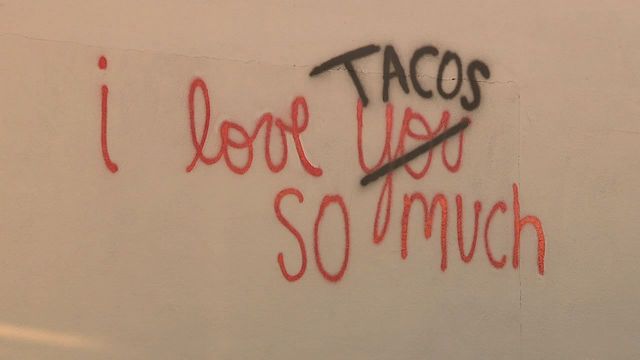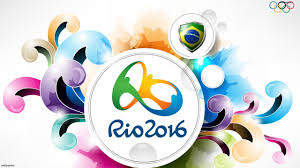It's graduation season: the time of year that we release another round of humans into the 'real world' and hope that they don't break anything too quickly.
I know a few people who are graduating from high school this year, and as easy as it is to be cynical about
millenials and the rising generation and this whole charade called "growing up"...well, there are plenty of good kids out there. And having inexperienced, ambitious people running amok pumped up with "achieve your dreams and change the world"
does have its perks.
We could say plenty of things about the rising generation, but perhaps more culturally-persistent is this institution called high school that we continue to insist is very important.
There are a lot of criticisms about high school and its associated curriculum. It doesn't actually prepare students for the 'real world'. Its benchmark standards are too low. It creates opportunities for bullying, over-stressing, depression, and so on. Its underfunded. Teachers are too tired or don't care or aren't paid enough. Yet somehow through all these criticisms, it still remains a cultural highlight in many peoples' lives. Or at least, it certainly appears that way, with the continued success of high school-centered media, the fact that everyone and their parents keep tomes of dusty yearbooks somewhere and refuse to get rid of them, and our persistent alliance to whatever mascot geography happened to assign to us (go wolves!)
I wasn't highly amused by my own ceremonious graduation. High school was one of the least important achievements to me. As a fellow student pointed out when we were all assigned to write graduation speeches, all that a high school graduation means is that you have followed the law and gone to school for the majority of your life. Thank you, law-abiding citizens.
I've been in the 'real world' for a few years now, and as it turns out, I've actually had to rely on things that I learned in high school a few times. Yes, diagramming sentences still hasn't come up. But I'm getting a new perspective on what it means to be educated, what it means to be prepared for life, and what high school can and should actually offer.
Scene change.
I went to a high school choir concert last week and the director had a few of the graduating seniors share things that they had learned throughout their choir career. Comments and quotes were made such as
"If your name is going to be on it, be proud of it."
"On time is late--be early."
"Always look sharp."
"If you want something, ask [the nicer person] first."
and so on. After several quotes, inside jokes, and explanations, the director asked for a comment about music, and the only thing they said was "learn it".
Back to soliloquy.
The choir was obviously a really good choir and their musical abilities were phenomenal. They won various awards throughout the year and are consistently among the top choirs in their state. Obviously, they've learned music. They've become impressive musicians and could probably sight read or count rhythms or blend effortlessly. But come the end of the year, the lessons that stuck out most to them were more attuned to how to live well. They were based on the relationship they had built with their classmates and director more than any particular musical principle. They were habits that their teacher had encouraged them to form in order to be successful.
I think that this is where high school is the most valuable. It helps us form good habits of personal accountability, preparedness, and work ethic. We learn study skills that we can rely on in college, whether our high school classes gave us a good foundation for the course or not. We have an opportunity to interact with teachers and learn how to work problems out respectfully. We can be involved in clubs and sports and competitions, to learn to cooperate with others and actually produce something that is entirely ours.
I put a lot of academic effort into high school, and most of the facts and theories I learned in high school have stuck with me far better than a lot of what I've studied in college. I don't use it all every day, but for the most part, I'm really glad that I know things like calculus and how Mexico's government works and what a Scarlet Letter means.
More than the academic value, however, high school has an incredible value in the formation of habits. High school gives you lots of opportunities to choose who you'll be. You make these choices in the classes you take and the activities you do and the people you be with, but you also choose simple habits. There's the routine stuff like getting to class on time and bringing your books and turning in your homework that turns you into someone who is well-prepared. Then there are habits that the life-changing teachers add to the curriculum. Either by example, or by directly applying it in class, teachers are able to mentor their students in ways that go much deeper than the periodic table and knowing geography.
I don't remember all of my Spanish vocabulary words, but I had a wonderful example of patience and social grace in that class that has helped me in countless situations.
I barely remember anything from dissecting sharks (except the smell), but that science teacher was an example of creativity, and encouraged everyone to do courageous and exhilarating things...just to make sure we're alive.
I definitely
do remember how to do polynomial long-division, but I treasure that algebra class because of the vision of unity that teacher had, and how he balanced having fun and getting things done.
I'm sad that I've forgotten the songs from choir, but I learned how to present myself well, how to help others succeed, and made it a habit to stay focused and make the most of work time.
I haven't used enough psychology to remember it well, but being able to accept other people and their ideas while still maintaining my own values is something that I'll keep using for the rest of my life.
I will probably always need to look up the integration of trig functions, but I appreciate the time my calculus teacher took to talk with our class when there were problems, and to help us work through them.
All the other things you need to know in the 'real world'--filing taxes, changing a tire, making an appointment, buying a house, doing CPR, balancing a budget, washing clothes--you might have to learn from another source. Thank goodness for mothers and the internet. But the things that will prepare you most for life are the personal habits that you make before you're actually in the 'real world'.
"We are what we repeatedly do. Excellence, then, is not an act, but a habit."
-Aristotle and friends











